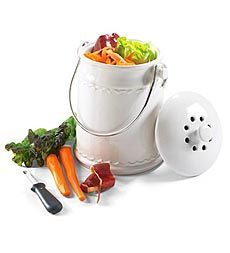特别推荐:2011两会双语直通车
此次全国“两会”上,部分政协委员建议应尽快立法管理餐厨垃圾,在制度上使其“变废为宝”。民建中央委员、海南省主委施耀忠介绍,根据清华大学的统计,我国城市餐厨垃圾年产生量不低于6000万吨,这些垃圾处理不到位,会对市民的健康产生影响。据介绍,餐厨垃圾如果经过高温无害化处理就可以变废为宝、变害为利。由餐厨垃圾加工成的蛋白质饲料可喂养家禽、牲畜,提炼出的泔水油脂可作为肥皂、油漆的辅助原料,提炼后的杂物可加工成农用肥料。
民进中央常委、宁夏自治区政府副主席姚爱兴就建议,应制定法律,对餐厨垃圾集中收集,专业运输,集中专业处理。姚爱兴委员建议,无证收集者被取缔后,应扶持经环保部门认可的正规餐厨垃圾处置企业,同时政府应对其收集、处置及排放全程监督。

 |
|
Rotten potatoes and unwanted chicken wings represent a novel form of energy, otherwise they could risk food safety.
|
Rotten potatoes and unwanted chicken wings represent a novel form of energy, otherwise they could risk food safety, said two Chinese political advisors who called for legislation against improper handling of kitchen waste.
"The legislature should make laws to guarantee that kitchen waste is properly treated and recycled into assets," said Yao Aixing, a member of the National Committee of the Chinese People's Political Consultative Conference (CPPCC), the top political advisory body.
Yao's proposal came at a time when most Chinese people, who have more disposable income, seem to be less thrifty when consuming food.
Yao serves as vice governor in charge of food safety affairs of the Ningxia Hui Autonomous Region. He warned that the growing amount of catering leftovers would put food safety and the natural environment under threat.
Each year, kitchen waste was "processed" into two to three million tonnes of swill-cooked dirty oil, which sneaked back to dining tables through an underground muck-money network, Yao cited official media reports as saying.
"This poses a serious danger to the food safety of citizens," he said.
The kitchen leftovers, thought to be a good source of digestible energy and high-quality proteins, might end up as feed for livestock such as pigs and chickens, as a supplement to their diet, the adviser said.
However, food safety experts said kitchen leftovers were a source of infection for animals, which, in extreme cases, could result in contamination of meat or eggs and cause illness among people who consume livestock products.
Growing kitchen waste also takes a toll on the environment, which falls victim to the leftovers that are kept away from people's dining tables and livestock feed, said Yao.
Burnt kitchen waste together with other household garbage in rubbish incineration power plants would greatly increase the emission of dioxins, a toxic gas, Yao said in his proposal.
Shi Yaozhong, another member of the CPPCC National Committee, submitted a similar proposal in which he also raised questions about energy waste as a result of the improper treatment of kitchen waste.
Chinese cities churn out at least 60 million tonnes of kitchen waste each year, representing the calorie equivalent of grain harvested from 12 million mu (800,000 hectares) of farmland, said Shi, citing data from the School of Environment in Tsinghua University.
In 2009, at least one hundred billion yuan (15.2 billion U.S. dollars) was wasted in the form of leftovers from China's catering sector, he said.
After receiving high-temperature treatment, kitchen waste can be processed into safe feed for livestock while the swill fat refined from the waste can be used to supplement raw material for producing soaps and paint and the leftovers can serve as fertilizer, Yao said in his proposal.
Shi and Yao called for the national legislature to roll out regulations to demand restaurants hand in their leftovers once a day to collectors from professional kitchen waste treatment companies.
After the case of swill-cooked dirty oil was revealed, four ministries, including the top economic planning body, the Ministry of Housing and Urban-Rural Development and the Ministry of Environmental Protection jointly launched a trial program last May for proper treatment of kitchen waste.
The ministries' move was followed by the State Council, China's Cabinet, which issued a decree for enhancing the regulation of swill-cooked oil and kitchen waste in July 2010.
Nearly 20 Chinese cities, including Beijing and Shanghai, have rules concerning kitchen waste treatment but enforcement has been weak due to the absence of a national law, said Shi.
相关阅读
委员建议建立失地农民保障体系
公车改革:省部级以下不配专车
中国将在2016年前发射空间实验室
(Xinhua)

(中国日报网英语点津 Helen 编辑)